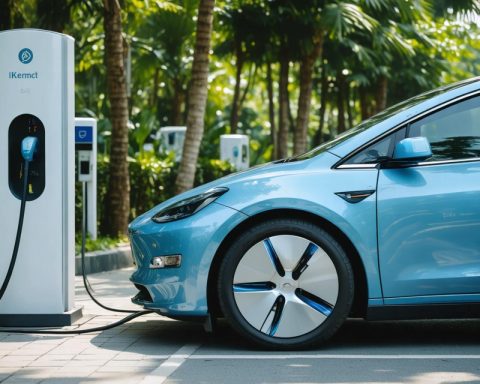Park City recently conducted a comprehensive survey to evaluate the effects of electric bicycles (e-bikes) on its multi-use pathways and natural surface trails. The findings have provided valuable insights into community perspectives and highlighted potential improvements for trail and pathway usage in the region. One of the key takeaways is the strong resident support for implementing a speed limit on multi-use pathways.
The survey revealed that respondents recognized both positive and negative impacts of e-bike usage on pathways. While concerns about safety and overcrowding were identified, the overall sentiment leaned towards support for e-bikes with certain regulations in place. Specifically, many participants favored speed limits ranging from 10 to 15 miles per hour, showing minimal support for higher limits.
Regarding natural surface trails, there was significant backing for the current Park City Municipal Code (PCMC) Non-motorized Trail Ordinance, which restricts the use of e-mountain bikes (E-MTBs) except for individuals with disabilities or those aged 65 and over. Although opinions varied, there seemed to be a consensus on allowing E-MTBs on designated trails or maintaining the current age and disability restrictions, with about one-fourth of respondents supporting a complete ban.
The survey also indicated widespread support for increased enforcement of existing e-bike regulations, highlighting the desire for more stringent efforts to regulate e-bike use in Park City.
Moving forward, the city is considering several initiatives to enhance safety and manage e-bike usage effectively. These include exploring the implementation of helmet laws for the bike share program, ramping up educational outreach and signage campaigns to promote e-bike safety and courtesy, and potentially implementing a 15mph speed limit on multi-use pathways based on community feedback. Additionally, while additional trails for E-MTB use are not currently endorsed, pilot projects or extensions in designated areas may be considered in the future.
By conducting this survey and taking community perspectives into account, Park City is working towards creating a better balance between e-bike usage and trail management. Through thoughtful regulations and improvements, the city aims to ensure the enjoyment of these pathways while maintaining safety for all users.
The electric bicycle (e-bike) industry is experiencing significant growth, with market forecasts indicating continued expansion in the coming years. According to a report by Grand View Research, the global e-bike market is projected to reach a value of $38.6 billion by 2025, with a compound annual growth rate of 6.1%. The increasing awareness of environmental sustainability, rising fuel prices, and governments’ efforts to promote clean transportation are the key drivers of this growth.
However, along with the growing popularity of e-bikes, there are also some challenges and issues related to their use. One of the main concerns is the impact of e-bikes on multi-use pathways and natural surface trails, as highlighted by the survey conducted in Park City. Safety is a significant issue, with the potential for accidents due to high speeds and overcrowding on these shared pathways. Additionally, there are concerns about the impact of e-bikes on the natural environment and the wear and tear they may cause to trails.
To address these issues, municipalities like Park City are considering implementing regulations and restrictions on e-bike usage. The survey revealed that residents overwhelmingly support the implementation of a speed limit on multi-use pathways, with many favoring limits ranging from 10 to 15 miles per hour. This suggests that controlling speeds can help address safety concerns and make shared pathways safer for all users.
Furthermore, the survey also showed support for the current restrictions on e-mountain bikes (E-MTBs) on natural surface trails, with some respondents suggesting designated trails for E-MTB use or maintaining the existing age and disability restrictions. However, opinions varied, with a portion of respondents supporting a complete ban on E-MTBs.
Enforcement of existing e-bike regulations was another area highlighted in the survey. The results indicated widespread support for increased enforcement efforts, suggesting the need for stricter measures to ensure compliance with e-bike regulations.
In response to these findings, Park City is considering various initiatives to enhance safety and effectively manage e-bike usage. This includes exploring the implementation of helmet laws for the bike share program, increasing educational outreach and signage campaigns to promote e-bike safety and courtesy, and potentially implementing a 15mph speed limit on multi-use pathways based on community feedback. While additional trails for E-MTB use are not currently endorsed, the city may consider pilot projects or extensions in designated areas in the future.
Overall, by conducting the survey and considering community perspectives, Park City aims to strike a balance between e-bike usage and trail management. As the e-bike industry continues to grow, municipalities and trail managers will need to address the various challenges and issues associated with e-bike usage to ensure the enjoyment of pathways while maintaining safety for all users.
Related links:
Global E-Bike Market Analysis, Size and Forecast







